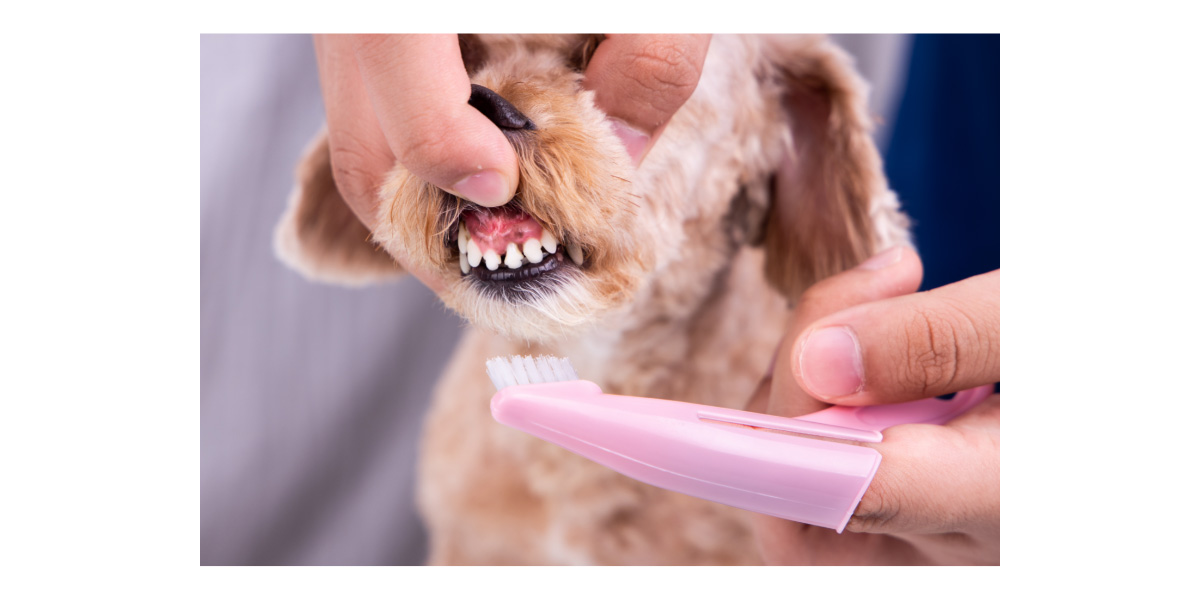How to Brush Your Dog's or Cat's Teeth
Doctor of Veterinary Medicine

While efforts are made to answer all questions as quickly as possible, if an immediate answer is required or if your pet is in need of urgent or emergency care, contact your pet's veterinarian immediately.
Doctor of Veterinary Medicine

You will receive an answer from Dr. Lindsay and our vet/tech team as soon as possible, usually the same day.
All answers are provided for informational or educational purposes only, and are intended to be a supplement to, and not a substitute for, the expertise and professional judgment of your pet's veterinarian.
It may be necessary to consult your pet's veterinarian regarding the applicability of any opinions or recommendations with respect to your pet's symptoms or medical condition.
CloseDoctor of Veterinary Medicine

An error has occurred, please reload the page and try again.
CloseWhile efforts are made to answer all questions as quickly as possible, if an immediate answer is required or if your pet is in need of urgent or emergency care, contact your pet's veterinarian immediately.
There is no answer related to your question

Why should I brush my pet's teeth?
We all love a pet with a healthy mouth and sweet breath, and brushing your pet's teeth only takes approximately two minutes a day. Your pet will love you for it, and your pet's heart, kidneys, and liver, which are directly influenced by oral health, will benefit.
Two common problems dogs with poor oral hygiene have, are loose and abscessed teeth. You don't want your pet to have one of these, so brushing is very important. Studies show that 98% of dogs with bad breath are suffering from periodontal disease, a result of plaque build up. So, get pet toothpaste, a toothbrush or finger toothbrush, and follow the steps below to get started.
The principles of brushing your dog's and cat's teeth
- Make it fun.
- Brush as much of the tooth surface as possible.
- The junction of tooth and gum is the most important area to brush.
- Focus on upper and outer molars.
- Keep introductory sessions short - 5 seconds, and work up to 2 minutes each day.
Equipment for brushing your pet's teeth
- Pet toothpaste with enzymes.
- Small toothbrush or finger cot.
10 steps for brushing your pet's teeth
- Initiating the process may be challenging at first, however, the key is to relax and have patience as it may take several attempts before successfully brush your pet's teeth.
- Have your pet sit in a relaxed position.
- Massage or gently stroke your pet's cheeks for several seconds every day.
- Introduce toothpaste to your dog or cat by dabbing it on a treat or letting your pet lick off it your finger. Repeat this process for several days to familiarize your pet with the taste.
- Dab toothpaste on a small toothbrush or finger toothbrush and without brushing, place into your pet's mouth for a few seconds. Gradually increase to 15-30 seconds, still without brushing.
- Once your pet is comfortable with this process, prep the toothbrush with toothpaste and slowly brush one tooth starting at the gum line working your way up to cover the entire tooth. Gradually increase to brushing several teeth.
- Retract the lips creating a smile and brush the back molars. Gradually increase brushing time to a total of 1 minute for the upper dental arcade and 1 minute for the lower arcade.
- If your pet tolerates only a short period of brushing, concentrate on the upper and outer molars.
- Over the next few days gradually increase brushing time to 1 minute on the upper teeth, and 1 minute on the lower teeth.
- Praise your pet!
How does pet toothpaste differ from human toothpaste?
- Human toothpaste, while not poisonous, is not meant to be swallowed.
- Pets should not have toothpastes with fluoride.
- Human toothpaste foams because it contains sodium lauryl sulphate.
Which pet toothpaste is best to use?
- Pet toothpaste is flavored. Favorite flavors are usually poultry, malt, and seafood.
- The best toothpastes for pets contain enzymes, such as glucose oxidase and lactoperoxidase, that dissolve plaque on the teeth.
- The best pet toothpastes do not contain sugar or sugar substitutes.
 Swipe
Swipe































